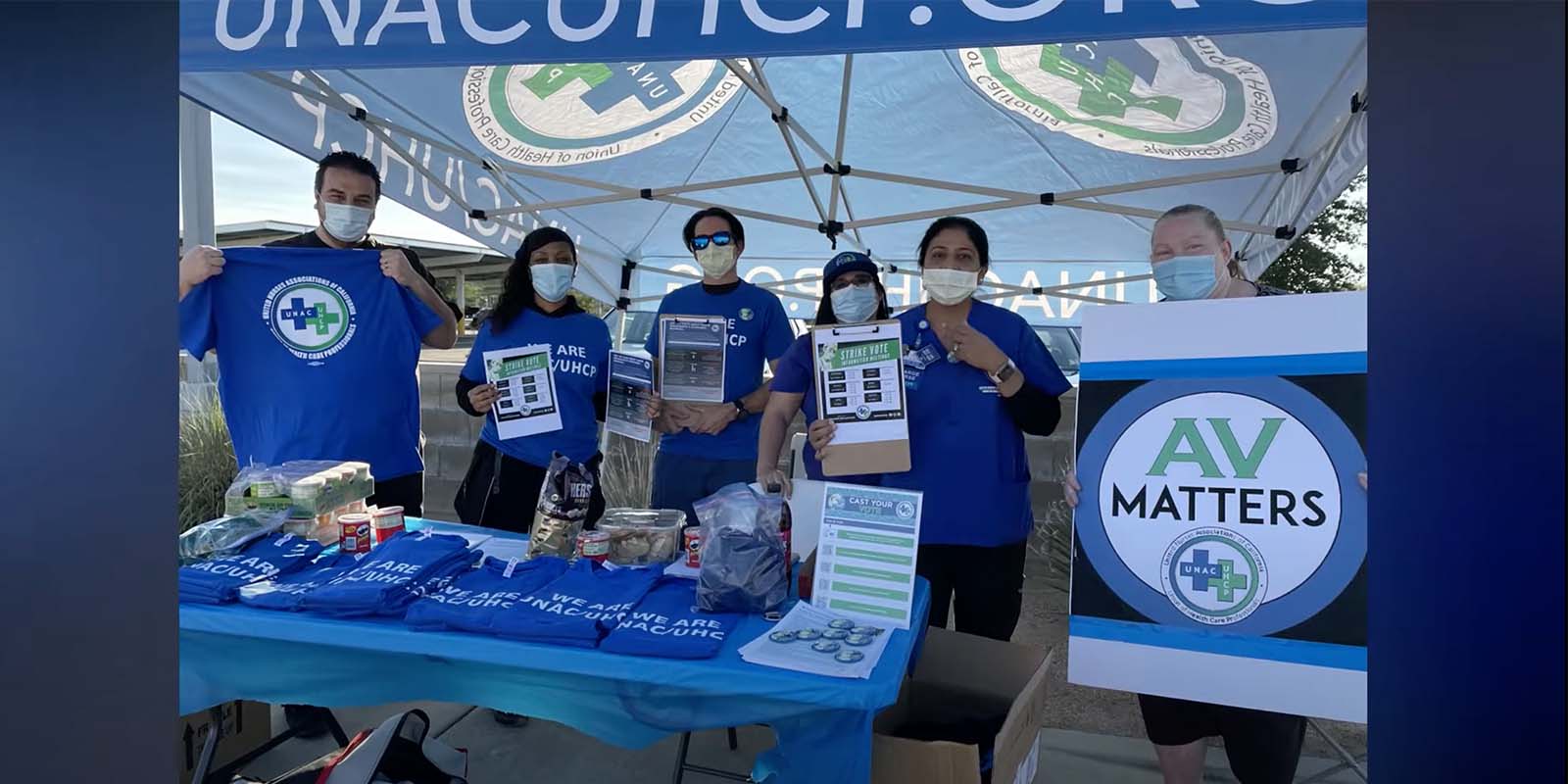LOS ANGELES – More than 18,000 union health care workers at Kaiser Permanente facilities across Southern California voted to strike if their calls for long-term solutions to chronic understaffing and reasonable wage increases go unmet.
With 18,209 members of AFSCME-affiliated UNAC/UHCP (United Nurses Associations of California/Union of Health Care Professionals) voting online between Oct. 1 and Oct. 10, the union announced on Monday a 96% “yes” vote to authorize a strike against the health care giant if necessary.
"We've really proven our worth and our dedication to our patients," said Jenny Wong-Swanson, a registered nurse and union member who voted in favor of a strike. "Over the past two years, we've worked without breaks, we've worked without lunches, we worked out of ratio, without resources, (we were) short-staffed. And we've always gotten the job done, to the detriment of our own health sometimes."
Overall voter turnout was 86%, with UNAC/UHCP representing nearly 21,000 registered nurses, pharmacists, midwives, physical therapists and other health care professionals at Kaiser Permanente's Southern California hospitals and clinics.
"We're concerned about the future of health care and how we recruit and retain nurses and other health care professionals to serve our communities for years to come," said Denise Duncan, a registered nurse and the president of UNAC/UHCP. "We can no longer sit back and watch the employer continue to dismantle the progress we made for better patient care and health plan membership growth."
UNAC/UHCP members and Kaiser management have been in negotiations since April. Union members are focused on recruiting additional nurses and other health care workers as severe shortages threaten to put patient care at risk. To ensure fair and competitive wages, the union is asking for 4% wage increases each year for the next three years.
On the other side of the table, Kaiser Permanente executives, with $44.5 billion in cash and investments, want to cut wages for new nurses and health care workers, which in the long run would depress wages for current workers. Despite claims to be under threat from pop-up clinics and start-up apps, the company served more patients and made $2.2 billion in 2020 during the coronavirus pandemic.
"I don't believe it's the way to attract great nurses and retain them," said Wong-Swanson, regarding Kaiser's lackluster proposals so far. "Retention is a huge issue. I don't feel like what our nurses and our health care workers are asking for is too much."
Any potential strike – after a 10-day notice to the employer as required of any health care union by the National Labor Relations Act – would affect Kaiser medical centers in Anaheim, Baldwin Park, Downey, Fontana, Irvine, Los Angeles, Ontario Vineyard, Panorama City, Riverside, San Diego, West Los Angeles and Woodland Hills, as well as numerous clinics and medical office buildings throughout Southern California.
To take action and to learn more about UNAC/UHCP members' ongoing fight for safe staffing visit https://www.investinpatientcare.com/.
